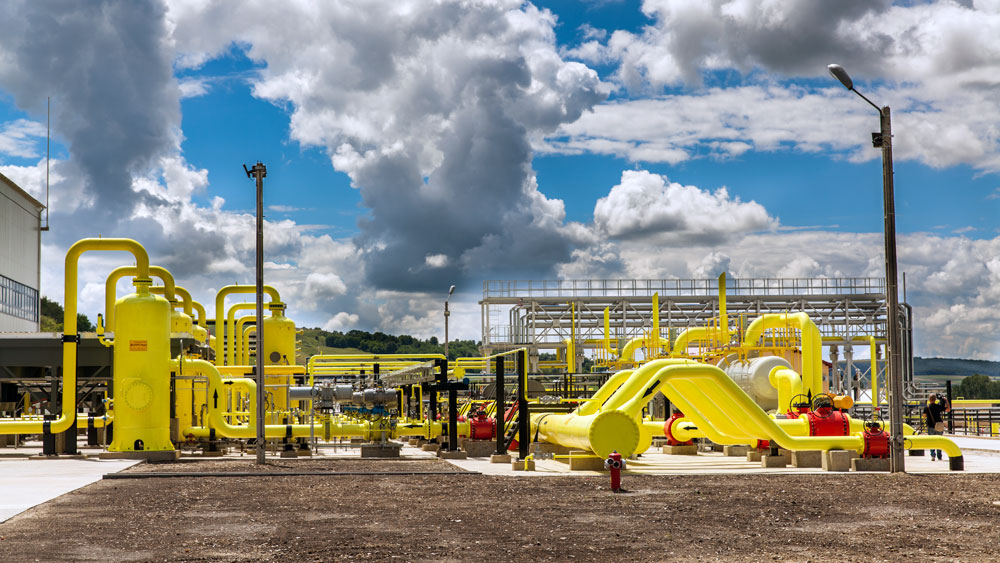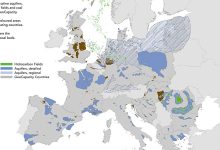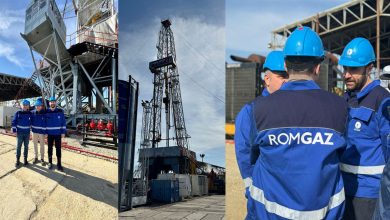Will Romania Become a Player on the Regional Gas Market?
In conditions in which Romania is not really connected to the major gas mains in the region, we need to be extremely attentive to all the decisions and reactions of the actors who decisively influence the situation from an energy point of view. There are constant mentions that Romania could become energy independent if Black Sea resources are managed to our benefit by the political decision-makers. But until then, we depend to a large extent on others. Or, surprise (?), we could help others.
For years, Europe has become accustomed to the fact that Russian energy giant Gazprom is the main supplier for many European countries. In the event (less likely, because the economic influence comes from here as well) where Gazprom were to stop transit to other countries, Ukraine’s state-owned company has considered Romania for transit in the region.
Two years ago, Gazprom increased gas exports to Europe by 8.1%, to the record value of 193.9 billion cubic meters. Currently, Gazprom ensures one third of Europe’s gas needs, through three main routes: the pipelines in Ukraine, the Yamal-Europe route, via Belarus and Poland, and the Nord Stream gas pipeline, which links Russia to Germany, via the Baltic Sea.
Having a gas surplus, Ukraine could deliver it to Poland, Slovakia and the Republic of Moldova through the Romanian pipelines, if Gazprom stops the transit provided in an agreement concluded 10 years ago.
Will Romania come into play?
Surprisingly, Ukraine’s state-owned gas giant Naftogaz considers, for the event where no agreement is reached with Russian monopoly Gazprom to continue Russian gas transit to Europe through the Ukrainian transmission system as of January 1, 2020, the option for countries such as Poland, Slovakia and the Republic of Moldova to be supplied with gas from Romania. The idea was expressed by Naftogaz CEO Yuri Vitrenko, after the last round of tripartite negotiations between Ukraine, Russia and the European Commission, for signing a new agreement on Russian gas transit through Ukraine, negotiations carried out in Brussels, in conditions in which the one in force expires at the end of this year. The discussions have not reached yet any result and will be resumed at the end of November, with very little time before the expiry of the transit agreement.
European Commission believes in the success of negotiations
The representative of the European Commission in the negotiations, Vice President Maroš Šefčovič, responsible for the Energy Union, is a Slovak politician fluent in Russian, who studied at the Institute for International Relations in Moscow. He expressed confidence in the success of the new round of negotiations, even though he is currently disappointed with the results.
Maroš Šefčovič stated that the future agreement was supposed to be based on European Union legislation, and the participants in the discussions were going to determine the volume and duration of the agreement. “I had prepared today’s trilateral talks in a way that should have allowed us – if there was a political will on all sides – to see a positive progress. It was assumed that the future transit agreement would be based on EU legislation. It was assumed that the volume and duration of the future agreement would be determined. Also, it was planned to discuss the legal disputes between Gazprom and Naftogaz. These parameters were acceptable to our Ukrainian partners who were ready to engage on the basis of our proposal. Unfortunately, the Russian delegation was not prepared to do the same at this moment”.
Ukraine, energy bridge between various European states
“Ukraine is trying to be an energy bridge between various European states, so that, for example, it can transport gas from Romania, where there is a surplus, to countries such as Slovakia, Poland or the Republic of Moldova. The issue of gas transmission to Moldova will be relevant this winter, because Moldova will also remain without Russian gas, if there is no transit (of gas through Ukraine – Ed.),” said Naftogaz’s CEO Yuri Vitrenko. He made this statement after being asked what options for using the Ukrainian transmission system were being considered for the situation in which Russian gas would no longer transit Ukraine. Vitrenko added that, at least in the near future, no such alternative use would be able to secure the revenues that Kiev currently receives from the transit agreement with Gazprom, which amount to about USD 3 billion per year.
Ukrainian Energy Minister Oleksiy Orzhel was pleased with the results of the trilateral negotiations in Brussels on the transit of Russian gas through Ukraine. He expressed hope that the talks were headed in the right direction, saying that Ukraine fully supported the proposals made by the European Commission, namely the conclusion of a long-term agreement with Russia, for 10 years, which would also contain concrete figures on gas volume. The Ukrainian parliament, he added, will soon examine the draft law on the creation of an independent operator on the gas transit market, adjusted to European rules.
Moreover, the Kiev authorities say they have enough gas, because the mild autumn of 2019 made it possible for the state-owned company Naftogaz to save 21.6 billion cubic meters of gas for the winter, by a quarter more than the amount it had in the same period last year.
Situation of Transgaz projects
On the other hand, phase 2 of the project of the operator of the Romanian national gas transmission system, Transgaz, for the interconnection of the national system with the T1 transit pipeline in Isaccea, with the assurance of gas flow in both directions (reverse flow), is delayed and will not be completed this year, but in 2020. In addition, it is necessary to sign interconnection agreements with the Ukrainian transmission operator, Ukrtransgaz. The latest official information, contained in the report of the Transgaz directors for the first 6 months of the year, shows that these agreements were being negotiated. In the longer term, Transgaz envisages the creation of a third interconnection point of the Romanian transmission system with that of Ukraine, in addition to the existing historical ones, Orlovka-Isaccea and Tekovo-Mediesu Aurit, the total value of the investment being estimated at EUR 125 million, and the deadline for commissioning is 2025. For now, from October 1, the agreement for Russian gas transit to the Balkan states, route known as the Trans-Balkan Corridor, between Transgaz and Gazprom, has only been extended with 3 months, until the end of this year.
What is Russia’s position
Russian Energy Minister Alexander Novak has mentioned that Russia was ready to work in accordance with European law and, if necessary, based on the existing agreement with adjustments. “Participants in the negotiation process are constructive. In the near future, we will continue the contacts regarding the drafting of acceptable rules of interaction between the gas transmission system operators in Russia and Ukraine, we will study the methodology of determining the tariffs for pumping gas on the territory of Ukraine and we will analyse it in terms of competitiveness,” said Alexander Novak.
Influences from the Republic of Moldova
The discussions were also attended by 3 representatives of Moldova Gaz. The Minister of Economy and Infrastructure received assurances from the Russian Federation that the Republic of Moldova would have gas supplies in the cold season secured.
“We have also discussed this topic with Mr. Novak, in Moscow, who once again confirmed that regardless of the circumstances related to the negotiations they were holding with the Ukrainian side, the Republic of Moldova would be supplied with gas during the winter. However, we, in the Government, also consider a plan B and C, if there are problems with gas transit, what we can do so that the citizens of the Republic of Moldova are supplied with gas,” Moldova’s Minister of Economy and Infrastructure Vadim Brinzan said.
Instead of conclusions
The situation is not simple at all, but may the time has come for Romania to negotiate from equal footing as the regional players of the gas market. Will it succeed?







